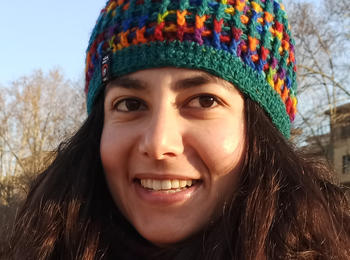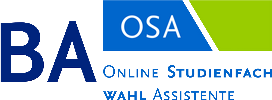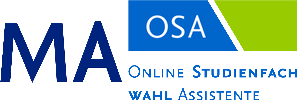Dr. Caterina Scalvedi

Friedrich-Meinecke-Institut
Wissenschaftliche Mitarbeiterin
Neuere Geschichte/Global History
Raum A.361
14195 Berlin
Caterina Scalvedi is a historian of modern European colonialism focusing on empire-building in Italy and its African colonies in the late 19th and 20th centuries. Her research explores intellectual and social histories of colonial knowledge circulation, education for colonial subjects, missions, and labor. Currently, she is completing her first book manuscript 'Subjects of Empire: Colonial Education and Imperial Crisis in Italian Africa, 1890-1960'.
She joins the Friedrich Meinecke Institute as a Marie Skłodowska-Curie Postdoctoral Fellow with a project titled ‘COLED: Colonial Education in Transnational and Transectoral Networks, 1900-1961’, funded by the European Commission.
Before moving to Berlin, she was awarded a PhD in History at the University of Illinois Chicago in 2023 and held visiting positions at Wake Forest University and Indiana University Bloomington.
ORCID: 0009-0009-2477-1938
My postdoctoral project examines how common ideas of colonial education—education for colonial subjects—formed and changed through transnational and transectoral knowledge transfers at the International Colonial Institute, the Save the Children International Fund, the Teachers College, the League of Nations, and UNESCO (1900-1961). Building on both digital and physical archival collections from five countries (France, Switzerland, Italy, the UK, and the United States), my project fosters interdisciplinary dialogue integrating global history methods with the social and intellectual study of colonialism, pedagogy, and humanitarianism. Specifically, my project aims to: 1) retrace a global intellectual history of colonial education in modern European empires, a topic usually studied within separate national cases; 2) show that deliberate gender-, class-, and race-specific educational planning was a peculiarity of 20th-century European colonialism, thus challenging the common narrative that European states lacked interest in colonial education; 3) identify and explain the transition from assimilationist-elitist to differentialist and mass-oriented approaches to colonial education as a byproduct of colonial knowledge exchange and negotiations between officials, teachers, students, activists, missionaries, and scholars. Pan-European in scope, this transition questions views of colonial education as a fixed and a-temporal block and of 'liberal' and 'fascist' colonial projects as divergent and mutually opposed.
Peer-Reviewed Articles and Book Chapters:
'A Publishing Record? Italy's Colonial Schoolbook Market', Contemporanea, 2 (2025), 237-255, doi: 10.1409/117717
'Making the Colonial School: Catholic Teachers and Muslim Students in Italian Somalia (1930-1941)', in Pierre Guidi, Ellen Vea Rosnes, Jean-Luc Martineau (eds.), History through Narratives of Education in Africa. Social Histories in Times of Colonization and Post Independence (1920s-1970s) (Leiden: Brill, 2024), 65-96, doi: 10.1163/9789004690172_004
'The Missionary at the Gates of ‘Dawn’: Educational Continuities from Fascist Somalia through the UN Order (1920s-50s)', Northeast African Studies 1 (2023), 45-89
'Cruce et Aratro: Fascism, Missionary Schools, and Labor in 1920s Italian Somalia', in Miguel Bandeira Jéronimo, Hugo Dores, and Damiano Matasci (eds.), Education and Development in Colonial and Postcolonial Africa. Policies, Paradigms, and Entanglements, 1890s-1980s (Cham: Palgrave MacMillan, 2020), 143-171, doi: https://doi.org/10.1007/978-3-030-27801-4_6
Think-Piece:
'Unpredictable Empire: Reflections from a Historian of Fascist Italy', Ab Imperio 1 (2025), doi: 10.1353/imp.2025.a960614
Reviews:
Francesco Casales, Raccontare l’Oltremare. Storia del romanzo coloniale italiano (1913-1943). Milan: Mondadori, 2023. Italia Contemporanea, forthcoming
Erica Moretti, The Best Weapon for Peace: Maria Montessori, Education, and Children's Rights. Madison, WI: University of Wisconsin Press, 2022. H-Italy, November 6, 2024, https://www.h-net.org/reviews/showrev.php?id=61411
Pierre Guidi, Éduquer la Nation en Éthiopie. École, État et identités dans le Wolaita (1941-1991). Rennes, France: IRD Editions, 2020. Revue d’Histoire contemporaine de l’Afrique, June 2021, doi: https://doi.org/10.51185/journals/rhca.2021.e494
Non-Academic Article:
'Exile and Journalism in a Global Pandemic: Voices from the Maison des Journalistes'. L’œil de la Maison des Journalistes, August 5, 2020



